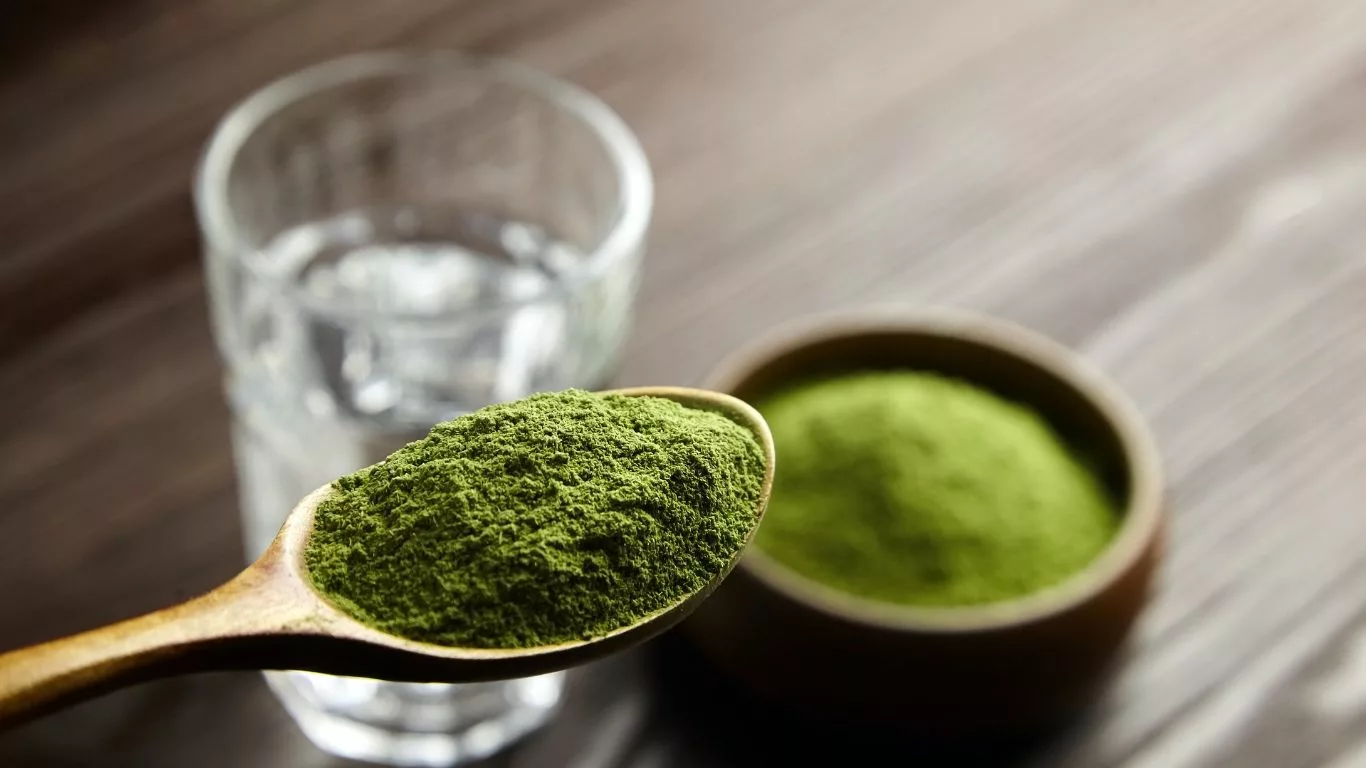GERD and Spicy Food Alternatives: How to Enjoy Meals Without the Burn
Struggling with GERD but miss the kick of spicy foods? We’ve got some GERD-friendly alternatives that will keep your meals flavorful without triggering heartburn. Read on for tasty swaps and tips!
If you’ve been diagnosed with GERD (Gastroesophageal Reflux Disease), you’ve probably been told to avoid spicy foods. But let’s be real: who doesn’t miss the heat of a good hot sauce or a spicy dish now and then? Thankfully, you don’t have to completely give up on flavor. With a little creativity and some GERD-friendly alternatives, you can still enjoy tasty meals without the discomfort. In this guide, we’ll explore some spicy food substitutes, tips, and tricks that allow you to satisfy your cravings while keeping your stomach happy.

Understanding GERD and Spicy Foods
Before diving into alternatives, it’s important to understand why spicy foods can be a problem for people with GERD. GERD occurs when stomach acid backs up into the esophagus, causing irritation and discomfort (aka heartburn). Spicy foods, especially those with chili peppers, garlic, and onions, are known to trigger acid reflux and worsen symptoms. The compounds in these foods, such as capsaicin in chili peppers, can relax the lower esophageal sphincter (LES) – the muscle that helps keep stomach acid where it belongs. When this happens, acid can escape into the esophagus, leading to heartburn.
Now, does this mean you need to abandon all your favorite fiery foods? Not necessarily! The key is finding alternatives that still give you the flavor kick without the heartburn aftermath.
Spicy Food Alternatives That Won’t Trigger GERD
Good news: there are plenty of ways to spice up your meals without the use of traditional spicy ingredients. Let’s explore some options that’ll keep your taste buds dancing while keeping your stomach at ease.
1. Ginger – The Anti-Inflammatory Spice
If you miss the heat but want to avoid the burn, ginger might just be your best friend. Ginger has natural anti-inflammatory properties and has been shown to help with digestion. It’s also a great way to add a little zing to your meals without the risk of triggering GERD symptoms. Try adding freshly grated ginger to stir-fries, smoothies, or even tea. You can also incorporate it into sauces and dressings for an extra kick.
2. Turmeric – Flavorful and Anti-Inflammatory
Turmeric is another fantastic alternative to spicy foods. Not only does it offer a warm, earthy flavor, but it also has powerful anti-inflammatory properties. It’s the key ingredient in curry powders and many Middle Eastern dishes. While turmeric isn’t spicy in the traditional sense, it can still add depth and complexity to your dishes without causing reflux. You can sprinkle turmeric over roasted vegetables, incorporate it into soups, or mix it into a marinade.
3. Mustard – The Zesty Alternative
If you’re craving something tangy and a little spicy, mustard might be your answer. It’s typically much milder than hot sauce or chili-based condiments, and it adds a satisfying kick. Mustard is also low in fat, which is another bonus for those with GERD, as fatty foods can trigger acid reflux. Use mustard on sandwiches, in salad dressings, or as a topping for grilled meats.

4. Cilantro and Parsley – Fresh and Flavorful Herbs
Herbs like cilantro and parsley are fresh, flavorful, and easy on the stomach. They won’t cause the burn that comes with chili peppers, but they’ll add plenty of flavor to your dishes. Cilantro works wonderfully in salsas, tacos, and even in soups. Parsley, while more mild, is a great addition to Mediterranean and Middle Eastern dishes. Both herbs are great additions to your GERD-friendly spice rack!
5. Fennel – Sweet and Mildly Spicy
Fennel has a subtle, sweet licorice-like flavor that can add a touch of spice to your meals without triggering reflux. Fennel is often used in Mediterranean cuisine and can be roasted, sautéed, or eaten raw in salads. It’s also known for its ability to aid digestion, making it a perfect option for those dealing with GERD. Add fennel to salads, pasta dishes, or pair it with roasted chicken for a unique twist on your meals.
6. Sweet Paprika – A Mild Heat Option
If you miss the flavor of chili peppers but want to avoid the heat, sweet paprika is a fantastic substitute. Unlike hot paprika, which packs a punch, sweet paprika offers a mild flavor with just a hint of smokiness. You can use it in spice rubs, soups, stews, and even sprinkle it over roasted vegetables for a subtle warmth without the irritation.
Tips for Enjoying Spicy Alternatives Safely
While these alternatives are much gentler on your stomach, it’s still important to eat mindfully. Here are a few tips to ensure you enjoy your GERD-friendly meals without discomfort:
1. Stay Away from Greasy Foods
Even if you’re using milder spices and herbs, greasy and fatty foods can still trigger GERD symptoms. Try to avoid fried foods and heavy sauces. Opt for grilled, baked, or steamed options instead.
2. Eat Smaller, More Frequent Meals
Large meals can put extra pressure on your stomach and increase the chances of reflux. Instead, try eating smaller portions throughout the day. This can help reduce the risk of heartburn and make digestion easier.
3. Keep Track of Your Triggers
Everyone’s body reacts differently to certain foods, so it’s a good idea to keep a food diary and note how different spices and foods affect you. This way, you can figure out which GERD-friendly alternatives work best for your stomach.

Conclusion
GERD doesn’t mean you have to miss out on flavorful foods. By using these spicy alternatives, you can still enjoy your meals without the discomfort of heartburn. Whether you go for ginger, turmeric, mustard, or fresh herbs, there are plenty of options to satisfy your taste buds without triggering acid reflux. With a little creativity and the right ingredients, you can continue to enjoy the flavors you love while keeping GERD symptoms at bay.
Appendices
References
- American College of Gastroenterology (ACG). (2023). Understanding GERD and its Triggers. Read Article
- Smith, A. & Johnson, B. (2022). Natural Remedies for GERD: Dietary Modifications. Journal of Digestive Health, 29(3), 122-130. Read Article
- National Institute of Diabetes and Digestive and Kidney Diseases (NIDDK). (2024). Dietary Recommendations for GERD. Read Article
FAQs
- Can I eat spicy foods with GERD if I take medication? While medication can help manage GERD symptoms, it’s still a good idea to limit spicy foods. They may still trigger symptoms in some people.
- Are there any spices that are completely safe for GERD sufferers? Mild spices like ginger, turmeric, and sweet paprika are generally safe for GERD. Avoid hot spices like chili peppers and cayenne.
- How can I reduce the heat in spicy foods if I have GERD? Try using a small amount of chili peppers or swapping with milder alternatives like mustard or sweet paprika to get flavor without the heat.
Disclaimer: The information provided in this article is for educational purposes only and does not substitute for professional medical advice. Always consult with your healthcare provider regarding dietary concerns related to GERD. Individual needs may vary, and professional guidance is crucial for personalized care.

Camellia Wulansari is a dedicated Medical Assistant at a local clinic and a passionate health writer at Healthusias.com. With years of hands-on experience in patient care and a deep interest in preventive medicine, she bridges the gap between clinical knowledge and accessible health information. Camellia specializes in writing about digestive health, chronic conditions like GERD and hypertension, respiratory issues, and autoimmune diseases, aiming to empower readers with practical, easy-to-understand insights. When she’s not assisting patients or writing, you’ll find her enjoying quiet mornings with coffee and a medical journal in hand—or jamming to her favorite metal band, Lamb of God.







